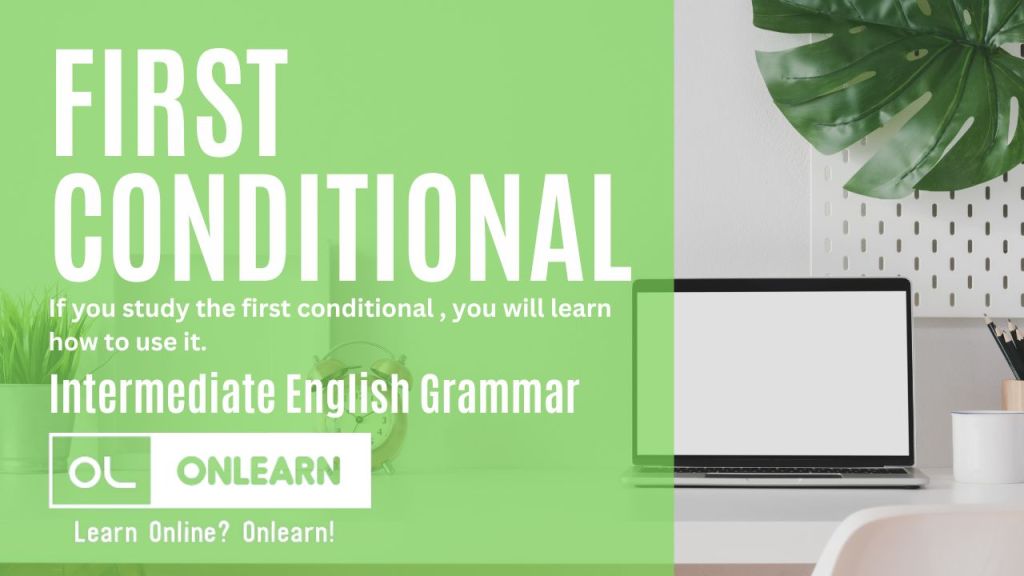The First Conditional

What is the first conditional?
The first conditional is often used to talk about things that are probable, or that we expect to happen in the future. It can also be used to give advice, make predictions, or suggest possible outcomes.

When you use the first conditional, it is important to note that the condition must be a real or possible event, and the consequence must be a logical or likely outcome of that event.
Forming First Conditional Phrases
The first conditional is a type of conditional sentence that we use to talk about real or possible future events, based on a condition. We use first conditional sentences a lot and understanding what they mean and how to use them will really help you communicate in English.
To form first conditional sentences we usually use:
If + present simple, will + bare infinitive
The ‘if’ clause should always be followed by a comma when it comes at the beginning of the sentence.
For example: “If it rains tomorrow, I will stay at home.”
In this example, the ‘if’ clause (if it rains tomorrow) expresses the condition, while the main clause (I will stay at home) describes the consequence or result of that condition.
The order of the two parts of first conditional sentences is not important, we can also say:
“I will stay at home if it rains tomorrow.”

In this case, the comma (,) between the two parts is not used.
Using Unless
You can also use unless in place of if. Unless mean if not.
So, just like we can say:
If it doesn’t rain, I will go for a picnic.
we could say:
I will go for a picnic tomorrow unless it rains.
Using modal verbs
We can use modal verbs in place if the will clause.
Modal verbs are verbs like can, should, must or might.
For example, just like we could say:
If it rains, I will get a taxi.
We could also say
If it rains, we should get a taxi.
or
If it rains, we can get a taxi.
Another example could be, instead of saying:
If it is sunny tomorrow, we will have a picnic.
We could say
If it is sunny tomorrow, we might have a picnic.
Exercises
If you think that you have understood this grammar, you can check with these exercises.
